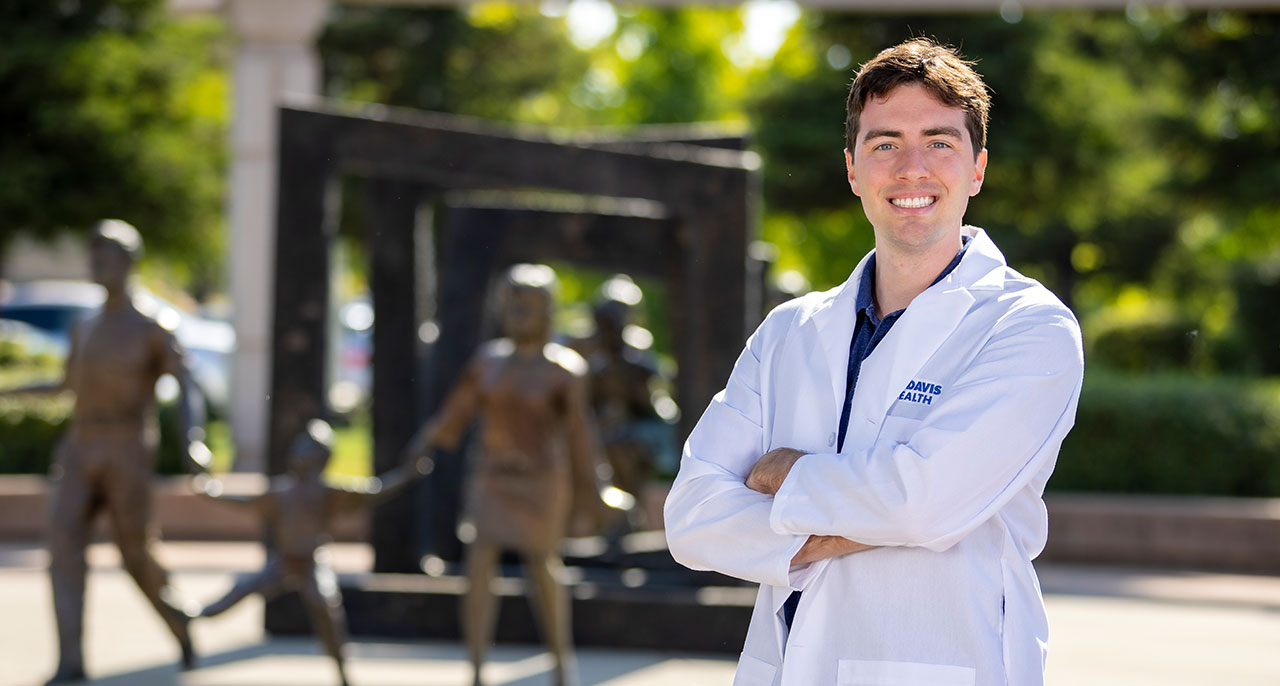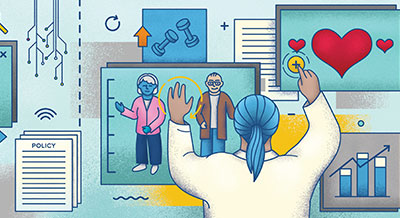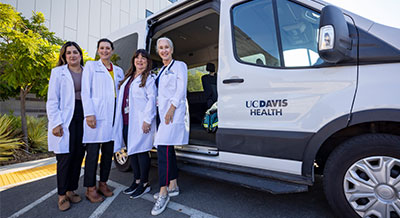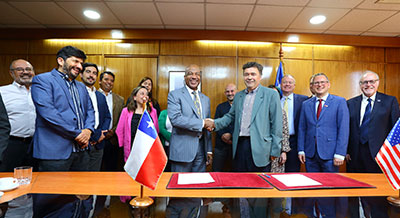The nursing profession beckoned to Alex Fauer in high school. Volunteering at a local community hospital in Clinton Township, Mich., he witnessed firsthand the power of the registered nurses working there.
“It felt almost like gravity, a pulling,” he says.
He was the first in his family to go to college, to become a nurse and to earn a Doctor of Philosophy (Ph.D.) degree. He was also the first nurse at UC Davis Health to be awarded a Paul Calabresi Career Development Award for Clinical Oncology, known as a K12 training and career development grant, from the National Cancer Institute.
From nurse to nurse scientist is a reality that Fauer, an assistant professor in the Family Caregiving Institute at the Betty Irene Moore School of Nursing at UC Davis, never thought possible.
Right place, right time
“I had no clue that Ph.D. nurses even existed. But I was so blown away at the University of Michigan… the research being done by nurses there,” he recalls. “I really was in the right place at the right time.”
The right time, he said, because of Michigan’s Undergraduate Research Opportunity Program (UROP) and the Hillman Scholars Program. UROP partners undergraduate students with university researchers and community organizations. The Hillman Scholars program provided funding for student who earned a bachelor’s degree in nursing to directly enter the nursing Ph.D. program after earning their degrees. These experiences led Fauer to receive mentorship from the renowned oncology nurse scientist Christopher Friese, and from physicians while taking care of patients in the adult bone marrow transplant setting.
As a registered nurse, Fauer practiced the same attributes he witnessed in high school to develop long-term relationships with people on their cancer journeys. As a nurse scientist, he also hones in on the caregivers who, he recognized, did not receive adequate support.
“The caregiver really is that link between patients having their optimal health outcomes once they transition back into the home setting. I see it as a social determinant of health,” Fauer explains. “We must evaluate models that include the needs of the caregiver when addressing the survivorship necessities of older adult cancer survivors.”
A new survivorship care model
Approximately 64% of cancer survivors are older adults, an estimate which is projected to rise to 74% by 2040. Scientists have studied the effectiveness of geriatric assessments in helping clinicians understand the health risks of older patients. They found that it does help, but we don’t know how to best implement them in real-world settings.
Earlier this year, Fauer received the $362,000 grant to examine whether a combination of geriatric assessments, with in-person and virtual coaching from a community health worker, can improve physical health and quality of life outcomes for adults between the ages of 65 and 90 who have breast, colorectal and prostate cancer – and for their caregivers.
“In tackling the twin challenges of quality of life in older adult cancer survivors and family caregiver burden, Dr. Fauer’s work is innovative and exciting,” says Janice F. Bell, associate dean for research. “The study as proposed has great potential impact and I look forward to following the findings from the pilot.”
Fauer is also including populations that are historically under-represented in clinical trials, such as older-adult and Hispanic patients.
“The specific intervention is a tailored assessment where they’ll complete geriatric assessments a few different times after their finish treatment. Then, our team will use that assessment to deliver a coaching program for both the patient and caregiver,” Fauer explains. “This is going to be a model that is tailored to the communities of patients around greater Sacramento where we can test this intervention’s feasibility and acceptability.”
‘The only option’
Fauer joined the Family Caregiving Institute in July 2022, and, just as he was drawn to nursing, gravitated toward a group of researchers focused on caregivers. The institute brings together a world-class group of clinicians, educators and researchers who strive to support the more than 40 million individuals who provide care to aging family members or friends in the U.S.
“Coming from someone who is a first-generation college student and who has had an uphill battle trying to make their place known in the academic arena and nursing science, I want to show everybody that the ideas nurses contribute are impactful,” Fauer says.






